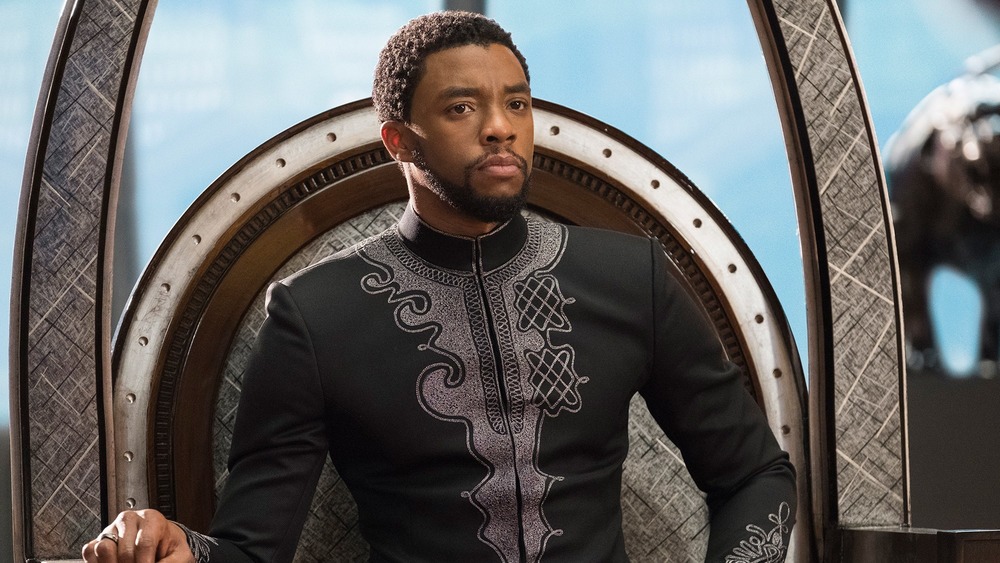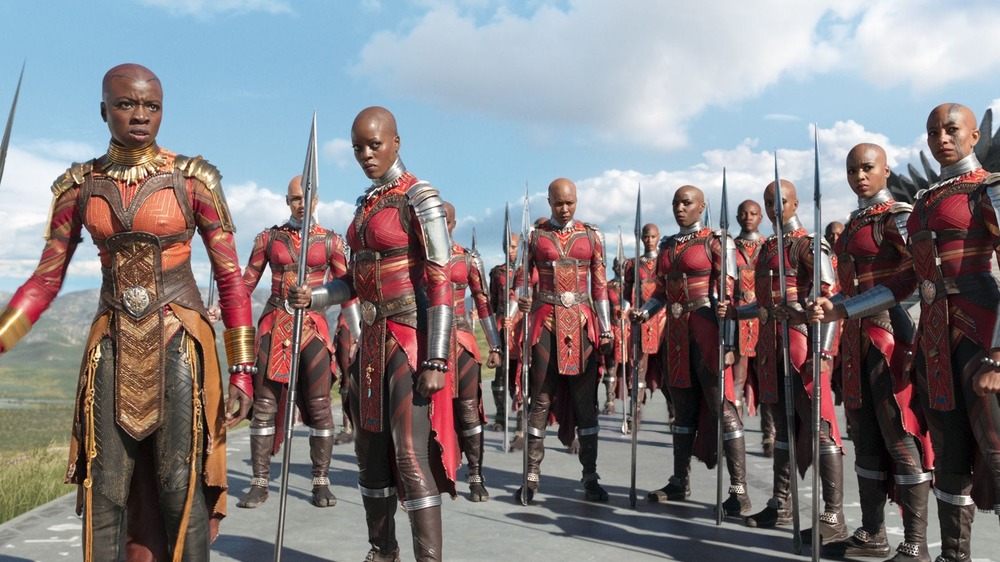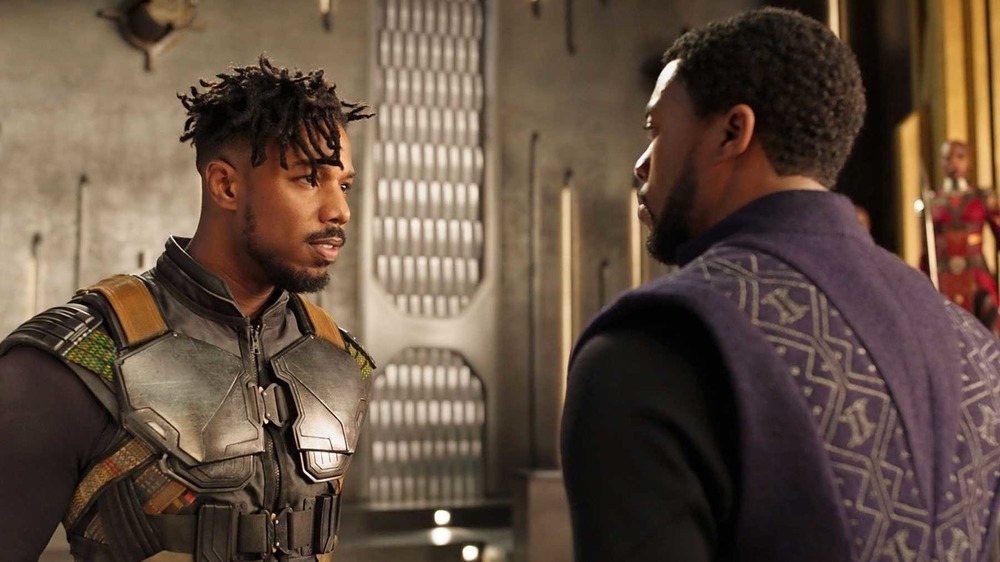This Is The Most Important Blockbuster Of The Decade
This past decade has been filled with blockbusters and record-breaking franchises. Some franchises were born, like the John Wick series, some died, like the Fox X-Men films, while others simply continued on, like the Fast & Furious films and the Marvel Cinematic Universe. But looking back, there are quite a few specific blockbuster films that made a huge impact on the entertainment industry, and society. From the momentous impact of seeing multiple movie heroes come together and connect in The Avengers, to the culmination of the Skywalker Saga of Star Wars, the 2010s had many important cinematic moments.
However, while the debates over which movie was the best will continue on, there is arguably one film, in particular, that truly marked this decade, forever altering both culture and movies to come — and that's Black Panther.
When Marvel Studios first announced that it would be making a movie about its Black Panther character, people were hesitant about the project, and whether it could be successful. But no one knew just how big the film would be when it released in 2018.
Coogler's Black Panther proved Hollywood wrong about diversity and superhero movies
Directed by Ryan Coogler, who previously helmed the critically-acclaimed drama Fruitvale Station, the late Chadwick Boseman brought T'Challa, the King of Wakanda, to life with both earnestness and strength, inspiring generations to come. The film featured an almost all-Black cast and crew, both in front of and behind the camera, with Lupita Nyong'o, Danai Gurira, and Letitia Wright in supporting roles, and Michael B. Jordan playing the antagonist, Erik Killmonger.
The first big achievement Black Panther made was its box office return, making over $1,346,000,000 worldwide (via Box Office Mojo). After that, the film's success only grew, with Black Panther becoming the first superhero film to be nominated for Best Picture at the Academy Awards. Though it lost to Green Book (which was a film that, unlike Black Panther, arguably took a step backward in its depiction of race), Black Panther's nomination proved that superhero movies could be taken seriously, and that they can say something meaningful in a story filled with villains and superpowers.
At the same time, the movie proved, once and for all, that the excuse Hollywood consistently had given for not having diversity on film — that diverse characters and stories don't make money — is a lie. Black Panther made over $1 billion, just a year after Wonder Woman proved that women can lead superhero movies — and movies in general — and make money, with Crazy Rich Asians doing the same for Asian characters. Add in the success of Spider-Man: Into the Spider-Verse, which starred biracial fan-favorite protagonist Miles Morales, and the message was clear.
Black Panther's success paved the way for movies like Shang-Chi, and Eternals, as well as upcoming Marvel TV shows like Ms. Marvel, which will feature the first Muslim superhero in the MCU, and Moon Knight, a Jewish superhero who will be played by Guatemalan-American actor Oscar Isaac.
Black Panther changed the world, not just the movies
It's easy to argue that a superhero movie, even one as topical as Black Panther, is just a fun story. But Black Panther's characters and narrative continue to impact communities today, through the positive message the film portrays about the capabilities of people of color, and in particular, women of color — people who have consistently been silenced in both film and society.
Boseman's T'Challa is an elegant ruler who unites his people and only uses violence when necessary, preferring words over claws. His sister, Shuri (Wright), is arguably the smartest character in the MCU, while Gurira's Okoye is the leader of the whole Wakandan army. For people who seldom see themselves represented on screen, these characters are inspirational, showing strength and virtue in people of color, something rarely depicted with such admiration and respect in media. Beyond that, Black Panther uses the story of T'Challa, the king of a rich nation in Africa, and his counterpart, Killmonger, who lived in hardship without a father in Oakland, to explore the differences between Africans and Black Americans, as well as between a privileged life and one in which you struggle to survive in a system built to tear you down.
Though Boseman, the man behind the Black Panther mask, has passed away, the real-life impact of his role continues. In the past year, protests against systemic racism have used "Wakanda Forever!" as a cry of unity and resistance, and as young boys and girls continue to dress up as the Black Panther, the movie's legacy will live on.


